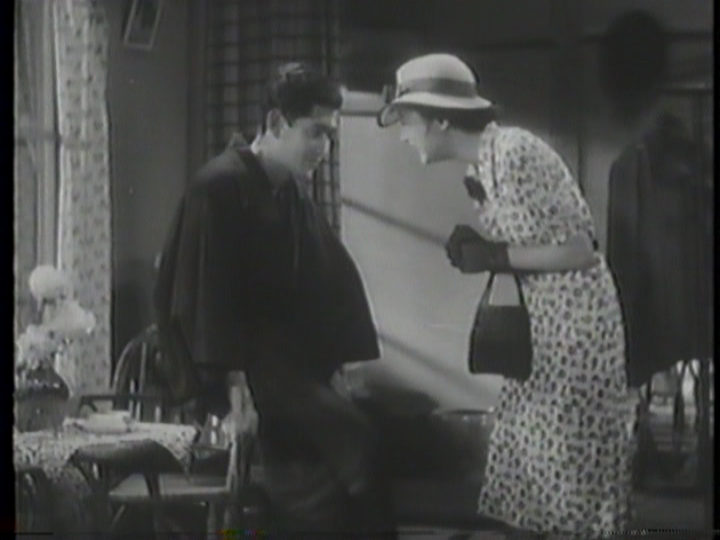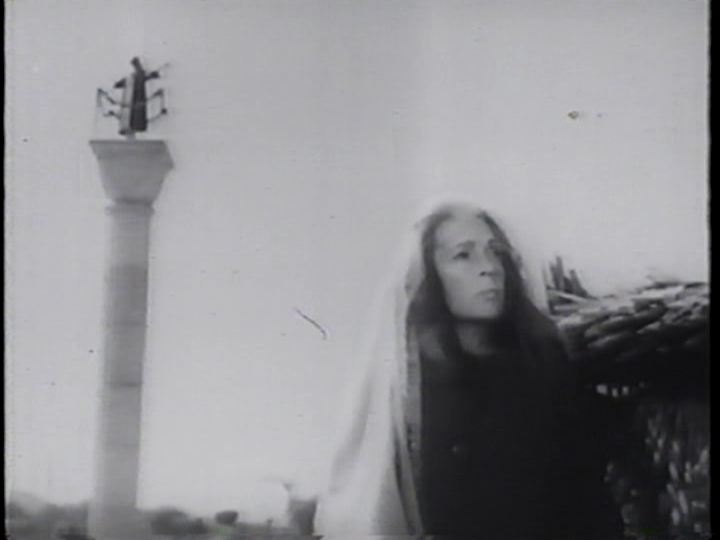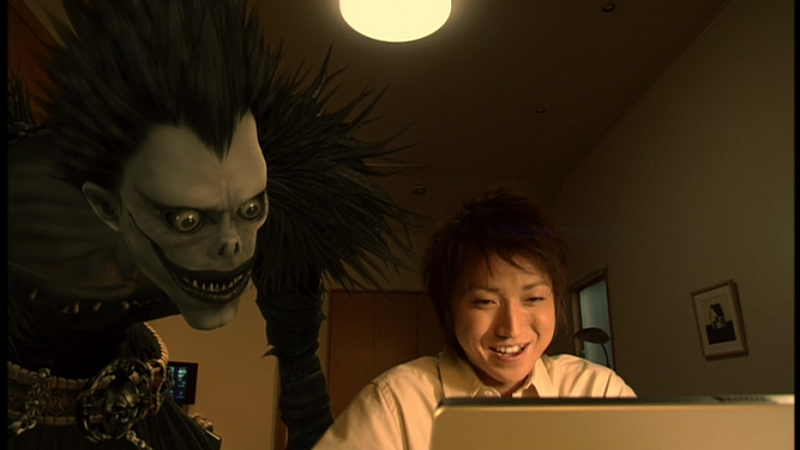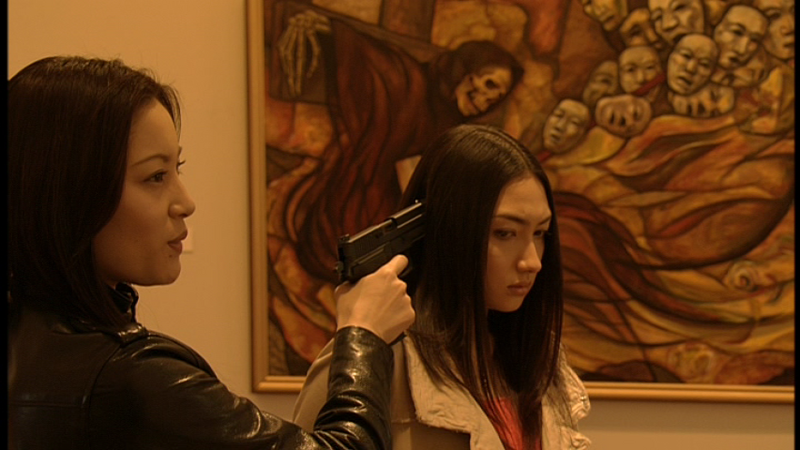Watched February 19-25, 2007
 Ai yori ai e (Yasujiro Shimazu, 1938) (no established English title -- possibly something like "From Love to Love")
Ai yori ai e (Yasujiro Shimazu, 1938) (no established English title -- possibly something like "From Love to Love")Shuji Sano and Sanae Takasugi want to get married -- but have a number of problems. He is not having much luck with career as a self-employed writer -- and she is supporting them both, while working as a bar hostess. Even worse, his father (Ryotaro Mizushima) disapproved of the marriage and has "banished" him from the family -- to the dismay of his mother (Ayako Katsuragi), younger sister (Mieko Takamine) and uncle (Takeshi Sakamoto). Will the rest of the family manage to bring father -- or son -- around?
 The son is offered a good job -- if her gives the girl up. the uncle presses her to give Sano up -- for his own good. As a respite from the familial strife, Sano, Takasugi and Takamine go to the movies -- to see Riefenstahl's Olympia.
The son is offered a good job -- if her gives the girl up. the uncle presses her to give Sano up -- for his own good. As a respite from the familial strife, Sano, Takasugi and Takamine go to the movies -- to see Riefenstahl's Olympia.Once again, we find a Shimazu film that seems to be a model for post-war Ozu (in this case -- we a foreshadowing of Equinox Flower). A brief film (just around an hour long)-- and not "momentous" in any way -- but enjoyable.
 Simón del desierto / Simon of the Desert (Luis Buñuel, 1965)
Simón del desierto / Simon of the Desert (Luis Buñuel, 1965)Claudio Brook plays Simon, a 5th century ascetic monk who lived for years standing a top a pillar in the Syrian desert. He is so austere, he refuses to embrace his own mother. While on pillar duty, he is visited by local folk, church dignitaries and a lovely devil (Silvia Pinal).
 Pinal makes three visits -- first as a (naughty) school girl, second as Jesus impersonator and third as a lovely woman (who travels via a slithering casket). With an epilogue in a big city night club (to which the devil has whisked Simon off). Yet another fascinating Bunuelian encounter with religion.
Pinal makes three visits -- first as a (naughty) school girl, second as Jesus impersonator and third as a lovely woman (who travels via a slithering casket). With an epilogue in a big city night club (to which the devil has whisked Simon off). Yet another fascinating Bunuelian encounter with religion. Desu nôto / Death Note (Shusuke Kaneko, 2006)
Desu nôto / Death Note (Shusuke Kaneko, 2006)Based on a very popular manga series -- and competing with an ongoing anime series, this film tells the story of Light Yagami, a law student grown weary of the law's inefficient handling of wrongdoers (Tatsuya Fujiwara), who takes matters into his hands when he finds a notebook dropped by a god of death. As it turns out, entering people's name in the book causes them to die promptly of a heart attack (unless additional details are specified). Ironically, the police official assigned to investigate the rash of mysterious deaths of criminals (and accused criminals) is his own father. When conventional methods prove unavailing, the police seek the aid of the mysterious and eccentric L (Ken'ichi Matsuyama).
 After Light uses drastic measures to take a group of FBI agents off his trail, the fiancee of one of them (Asaka Seto) starts her own unorthodox investigation -- embroiling Light's idealistic and devoted girl fried (Yu Kashii). Mildly entertaining, but probably rather ephemeral -- visually not a lot of imagination -- beyond the special effects.
After Light uses drastic measures to take a group of FBI agents off his trail, the fiancee of one of them (Asaka Seto) starts her own unorthodox investigation -- embroiling Light's idealistic and devoted girl fried (Yu Kashii). Mildly entertaining, but probably rather ephemeral -- visually not a lot of imagination -- beyond the special effects. Kan shang qu hen mei / Little Red Flowers (ZHANG Yuan, 2006)
I had rather high expectations for this -- as the premise was interesting -- a look at a highly regimented orphanage (for Chinese 4 year olds), into which a free spirit FANG Qiang-qiang (DONG Bo-wen) is rather unwillingly thrust. While the kids are cute enough, the presentation seems rather artificial (underneath the veneer of naturalism) -- and the story goes nowhere in particular. Lots of this looks rather lovely -- but the mainland DVD I watched won't work at all on my computer (so no screen shots).
Comments